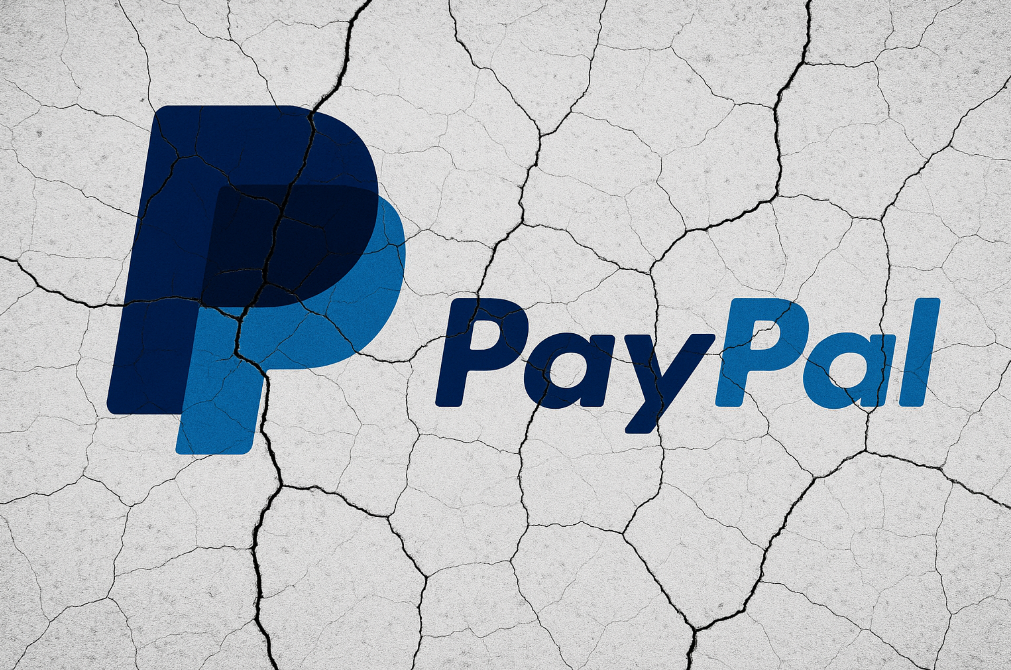PayPal just experienced its worst security nightmare in years, and the timing couldn’t be more catastrophic. German banks blocked over 10 billion euros in PayPal transactions on Monday after detecting millions of suspicious direct debits, while hackers simultaneously claimed they’re selling 15.8 million PayPal account credentials on ‘dark web’ forums.
Whether these events are connected remains unclear, but the timing exposes some fundamental vulnerabilities in the digital payment ecosystem we’ve come to trust with our money.
The German banking crisis unfolded like a financial horror movie. PayPal’s security filters, the invisible guardians that normally catch fraudulent transactions before they reach banks, either completely failed or suffered major disruption late last week. Without this crucial defence, unvetted direct debits flooded into German financial institutions like a digital tsunami. Banks had no choice but to slam the emergency brakes, freezing billions in legitimate transactions to prevent potential fraud.
Germany’s Savings Banks and Giro Association, representing over 300 financial institutions, confirmed the chaos had “significant impact on payment transactions” across Europe, with Germany bearing the brunt. The scale suggests this wasn’t a minor glitch but a systemic failure that left PayPal temporarily unable to distinguish legitimate transactions from fraud. One banking source, speaking anonymously, estimated the frozen payments ranged from hundreds of millions to billions of euros, a spread so wide it reveals how blindsided financial institutions were by the true scope of this.
PayPal’s response felt almost dismissive. A spokesperson described it as a “temporary service interruption” affecting “certain transactions,” claiming the issue was quickly identified and resolved by Tuesday. But when your security system fails so spectacularly that banks freeze 10 billion euros in payments, calling it a “service interruption” is like calling a plane crash an “unscheduled landing.”
Meanwhile, on dark web forums, cybercriminals are hawking what they claim is a database of 15.8 million PayPal credentials stolen in May 2025. The dataset allegedly includes not just email addresses and plaintext passwords but also associated URLs, everything needed to automate credential stuffing attacks at scale. The hackers note that while many passwords appear strong, a significant portion are reused across multiple services, making victims vulnerable far beyond PayPal.
Yet something smells off about this supposed breach. Security experts examining the sample data find it suspiciously similar to info-stealer malware logs, credentials harvested from infected computers rather than PayPal’s servers directly. The asking price is surprisingly low for such valuable data, another red flag that suggests either the data is old, fake, or already heavily exploited.
PayPal denies any new breach occurred, pointing instead to a 2022 credential stuffing incident that exposed 35,000 accounts, a fraction of the millions now claimed. But their denial rings hollow when German banks are simultaneously battling unprecedented suspicious activity from PayPal transactions. Even if these aren’t directly connected, the optics are devastating: PayPal appears to be haemorrhaging security on multiple fronts.
The German incident reveals a terrifying reality about digital payments. When PayPal’s fraud detection fails, it doesn’t just affect PayPal; it threatens the entire banking system. Those unvetted direct debits could have drained accounts across Germany if banks hadn’t acted swiftly. The interconnected nature of modern finance means one company’s security failure becomes everyone’s crisis.
For users caught between these disasters, the implications are stark.
If hackers truly possess millions of PayPal credentials, those accounts become weapons for identity theft and financial fraud. The URLs included in the alleged breach enable automated attacks that can test thousands of username and password combinations per minute across multiple sites. Anyone who reused their PayPal password elsewhere faces immediate risk.
The credential stuffing angle is particularly insidious. These attacks exploit our worst security habit: password reuse. Hackers take credentials from one breach and systematically try them everywhere else, knowing that 65% of people reuse passwords. If your PayPal password matches your Amazon, banking, or email password, you’ve handed criminals a master key to your digital life.
PayPal’s market response tells its own story. Shares dropped 1.9% at opening, a relatively mild reaction that suggests investors either don’t believe the breach claims or trust PayPal to weather the storm. But reputational damage accumulates differently than stock prices. Every security incident erodes the trust that payment platforms depend on for survival.
It’s a cautionary tale in terms digital payment adoption. As physical cash disappears and digital transactions become the mandatory default for modern life, we’re increasingly dependent on companies like PayPal to safeguard not just our money but our economic participation. When these fail through technical glitches or security breaches, millions lose access to their own funds or worse, watch them disappear entirely , with no cash stuffed in your mattress to bail you out.

Alex Rivers is a cybersecurity analyst and founder of The Hack Today. With over a decade of experience in ethical hacking and digital threat analysis, Alex writes to make breaking security news accessible and actionable to everyone. He has worked with fintech startups, government bodies, and security firms to expose critical vulnerabilities before they could be exploited. When he’s not dissecting zero-day exploits, he’s deep-diving into bug bounty reports or walking his dog.

